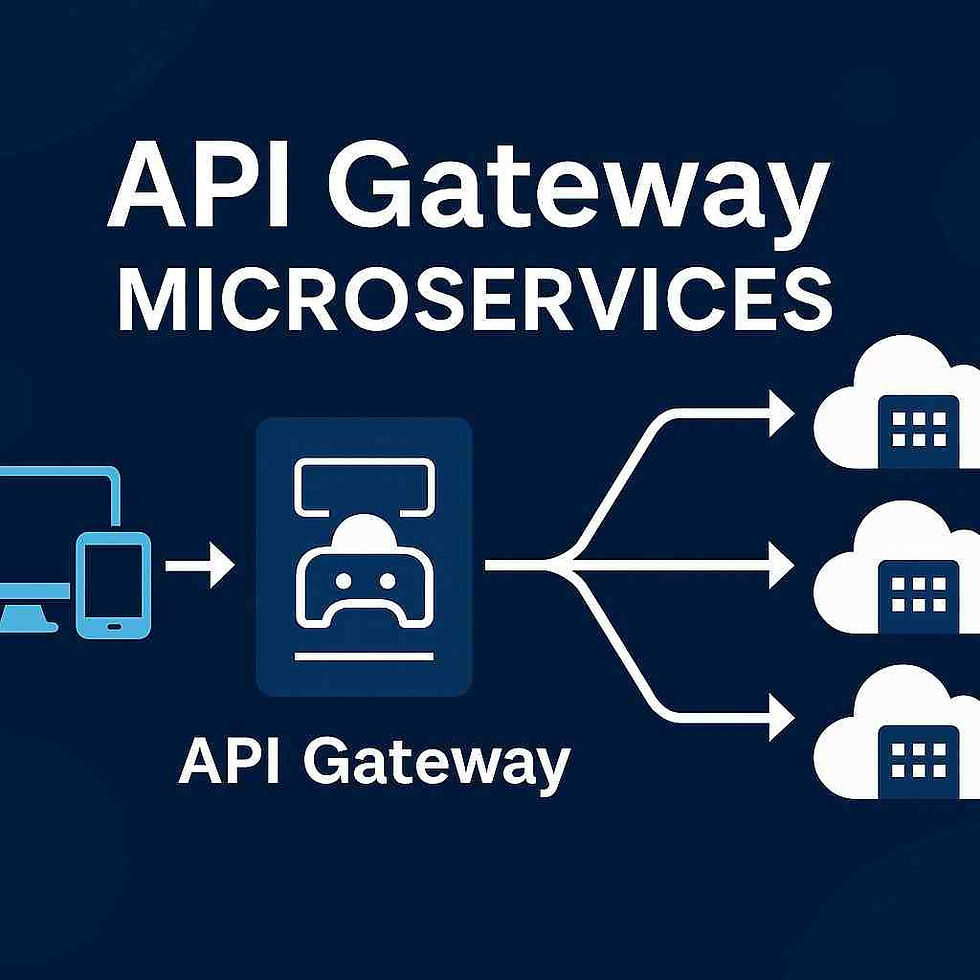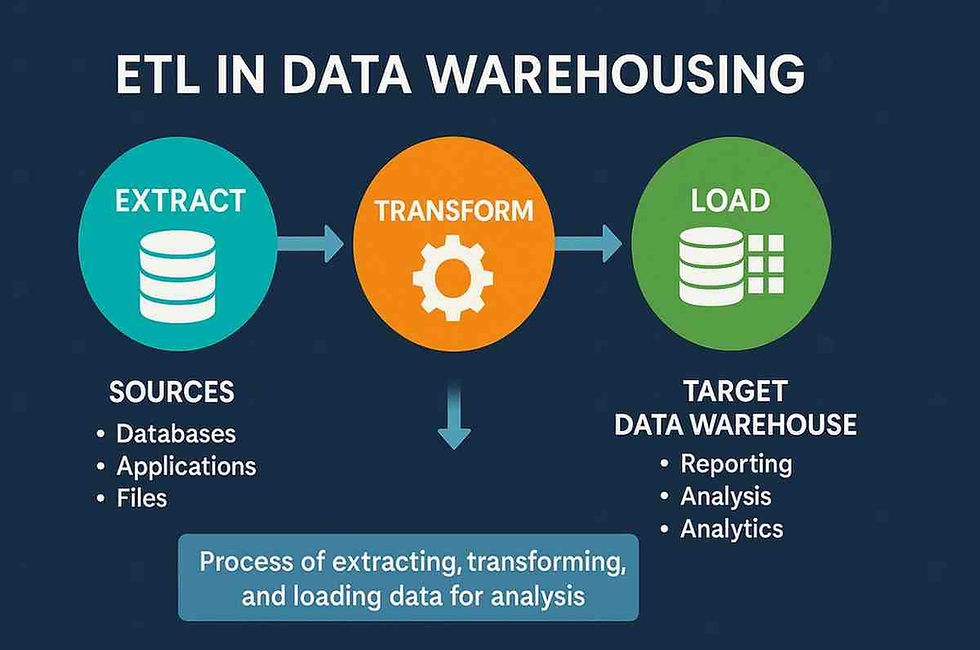Top 10 Website Testing Tools: Features, Pricing & Benefits
- Gunashree RS
- Nov 5, 2024
- 7 min read
Website testing tools are essential for ensuring that web applications perform smoothly, look great, and provide a top-notch user experience across various devices and platforms. These tools streamline the testing process by automating tasks, improving bug detection, and supporting cross-browser compatibility. Whether you're a developer, tester, or project manager, using reliable website testing tools can significantly improve the quality and performance of your site.
In this guide, we’ll explore the top website testing tools available today, highlighting their key features, pricing, and benefits.
Introduction to Website Testing Tools
Website testing tools have revolutionized how web applications are developed and refined. These tools enable testers and developers to simulate real-world scenarios and user interactions to detect and resolve issues early on. They come equipped with functionalities like automated testing, bug tracking, cross-browser testing, and seamless integration with continuous integration (CI) and continuous delivery (CD) pipelines.
Selecting the right website testing tool depends on factors like usability, cost, integration, and the specific needs of your testing environment. In the following sections, we'll review ten of the most popular website testing tools, each catering to different testing requirements and budget constraints.

1. Testsigma
Testsigma is a modern, AI-powered testing platform that supports end-to-end automated testing for web applications. It is known for its codeless testing capabilities, allowing testers to write test cases in simple English. The tool also offers extensive cross-browser support with thousands of real devices available on its cloud.
Features:
Cross-browser testing: Access to multiple browsers and OS combinations for thorough cross-compatibility checks.
Data-driven testing: Enables the use of varied test data inputs for comprehensive coverage.
Remote execution: Offers secure cloud access, ideal for remote teams.
Bug management: Automated bug reporting with screenshots and video logs.
Parallel testing: Supports simultaneous testing on multiple browsers to save time.
Price: Free trial available, with paid plans for advanced features.
Best For: Teams requiring an end-to-end testing tool with codeless scripting capabilities.
2. TestComplete
Developed by SmartBear, TestComplete is widely used for web application UI testing and is suitable for both codeless and code-based test creation. Testers can write test scripts in JavaScript, Python, or VBScript, providing flexibility for those comfortable with coding.
Features:
Cross-browser testing: Comprehensive browser and OS compatibility options.
Data-driven testing: Import multiple data sets for enhanced test coverage.
Remote execution: Cloud-based or on local/virtual machines for flexible access.
Bug tracking: Integrates with bug management tools for streamlined issue resolution.
Parallel testing: Executes tests on cloud or local machines in parallel to increase efficiency.
Price: Starts at $6,095.
Best For: Teams focused on UI testing for web applications.
3. BrowserStack
BrowserStack is a popular cloud-based testing platform with access to over 2,000 devices and browsers. It supports real-time debugging and allows testing in secure dev and staging environments, making it ideal for agile teams.
Features:
Cross-browser testing: Native browser experience for reliable results on real devices.
Data-driven testing: Integrates with Selenium for extensive data-driven testing.
Remote access: Cloud-based platform accessible from any location.
Bug tracking: Provides video recordings, screenshots, and network logs for efficient debugging.
Parallel testing: BrowserStack Automate enables simultaneous testing across environments.
Price: Starting at $29/month, billed annually.
Best For: Cross-browser and UI testing for agile teams.
4. Selenium
Selenium is an open-source testing framework known for its flexibility and robust support for multiple programming languages like Java, Python, and C#. With Selenium WebDriver, testers can automate interactions on browsers, making it highly adaptable for various testing needs.
Features:
Cross-browser support: Compatible with major browsers including Chrome, Firefox, and Safari.
CI/CD integration: Seamlessly integrates with Jenkins and other CI/CD tools.
Comprehensive API: Offers a powerful WebDriver API for browser automation.
Community Support: Strong community resources and extensive plugins.
Price: Free.
Best For: Developers with coding expertise who need a flexible testing framework.
5. Cypress
Cypress is an end-to-end testing framework particularly suited for JavaScript applications. Known for its ease of use, it supports real-time reloading, automatic waiting, and time-travel debugging, making it a great choice for modern web development teams.
Features:
Time travel: Snapshots at each step enable easy debugging.
Real-time reloads: Tests automatically reload on code changes.
Automatic waiting: Eliminates the need for wait commands.
Extensive documentation: Rich resources and examples for new users.
Price: Free, with paid plans for advanced features.
Best For: Modern web applications, especially JavaScript frameworks.
6. Katalon Studio
Katalon Studio is a versatile platform supporting web, mobile, API, and desktop testing. It offers both codeless and coded options, making it suitable for a range of testers.
Features:
Broad testing scope: Covers web, mobile, API, and desktop applications.
Built-in keywords: Simplifies test creation with pre-defined keywords.
Integration options: Works with CI/CD tools, Jira, Git, and more.
Data-driven testing: Easily implement tests with different data sets.
Price: Free version available, with premium plans for advanced functionalities.
Best For: Teams looking for an all-in-one testing solution.
7. LambdaTest
LambdaTest is a cloud-based testing tool that allows cross-browser testing on over 2,000 browsers and OS environments. It supports automated screenshot testing and geolocation testing for global projects.
Features:
Live testing: Real-time testing on a variety of browser and OS configurations.
Automated screenshots: Capture screenshots on multiple browsers simultaneously.
Geolocation testing: Enables testing from different global locations.
CI/CD integration: Compatible with Jenkins, Travis CI, and others.
Price: Free trial, with paid plans starting at $15/month.
Best For: Real-time cross-browser testing for geographically diverse teams.
8. Postman
Though primarily designed for API testing, Postman is also useful for backend testing in web applications, ensuring seamless integration between front and backend services.
Features:
API testing: Comprehensive REST and SOAP API testing.
Automated testing: Write scripts for API response validation.
Mock servers: Simulate API responses for testing without a live server.
Collaboration: Team features for sharing collections and working collaboratively.
Price: A free trial is available, with paid plans for additional features.
Best For: Teams that focus heavily on API and backend testing.
9. Ranorex
Ranorex is an automation solution designed for both desktop and web applications. It provides codeless automation for non-programmers, allowing easy test creation and management.
Features:
Codeless automation: Simple interface for creating tests without code.
Cross-browser support: Compatible with multiple browsers and platforms.
CI/CD integration: Works with Jenkins, Azure DevOps, and more.
Detailed reporting: Provides insights and documentation for test results.
Price: Paid plans, with a free trial available.
Best For: Teams requiring both codeless and coded automation options.
10. Devzery
Devzery is an API testing platform that focuses on automated regression testing and API virtualization. Its codeless approach allows users to create test scenarios in plain English, making it accessible for both technical and non-technical users. Devzery’s cloud infrastructure ensures seamless integration with CI/CD pipelines, making it ideal for agile teams needing fast feedback loops and reliable API testing.
Features:
Codeless Testing: Easily create API regression tests without coding.
API Virtualization: Simulate real-world API interactions without relying on live endpoints.
Cross-language Support: Compatible with multiple programming languages.
CI/CD Integration: Integrates with popular CI/CD tools for continuous testing.
Price: Free trial available; paid plans offer advanced features.
Best For: Teams looking for reliable API testing with virtualization capabilities.
Factors to Consider When Choosing a Website Testing Tool
When selecting a website testing tool, consider the following factors:
Functionality: Ensure the tool meets your testing requirements, including performance, security, and accessibility.
Ease of Use: The tool should be intuitive and easy to learn for efficient adoption.
Integration: Check if the tool integrates with your existing systems and processes.
Reporting: Look for clear and detailed reporting to aid in tracking and debugging.
Cost: Assess if the tool’s pricing structure fits your budget.
Support: Consider the level of customer support provided, especially for complex tools.
Scalability: Choose a tool that can handle your project's growth and evolving needs.
Conclusion
The right website testing tool can transform the quality of your web application by detecting and resolving issues early in the development process. Tools like Testsigma and BrowserStack offer extensive cross-browser testing, while Selenium and Cypress provide powerful automation features for developers. Whether you're focused on UI, cross-browser compatibility, or backend APIs, selecting the right tool can make a significant difference in the efficiency and effectiveness of your testing efforts.
FAQs
Can Selenium automate web applications?
Yes, Selenium can automate web apps on multiple browsers and OS, supporting interactions like clicking, typing, and navigating.
Why is Testsigma popular among website testing tools?
Testsigma offers AI-driven test automation, cross-browser testing, and a codeless interface, making it ideal for comprehensive web app testing.
How do you test a website application?
Testing involves checking functionality, usability, security, and cross-browser compatibility, using tools to simulate user interactions and detect issues.
What is the importance of cross-browser testing?
Cross-browser testing ensures that your website functions correctly on various browsers and devices, offering a consistent user experience.
What are the benefits of using BrowserStack?
BrowserStack provides access to over 2,000 real devices and browsers, enabling thorough testing with native browser experiences and real-time debugging.
How does Katalon Studio support CI/CD integration?
Katalon integrates with popular CI/CD tools, making it easy to automate testing within continuous delivery pipelines.
Is TestRail only for test management?
Primarily, yes. TestRail specializes in organizing and managing test cases, test plans, and runs, integrating with other testing and bug-tracking tools.
Can non-coders use Ranorex for website testing?
Yes, Ranorex offers codeless test creation, allowing non-programmers to automate testing without needing to write code.
Key Takeaways
Website testing tools improve app reliability by detecting and resolving issues early.
Factors like functionality, ease of use, and integration are key in tool selection.
Testsigma, TestComplete, and BrowserStack excel in end-to-end testing and cross-browser compatibility.
Postman, Selenium, and Cypress cater to backend and API testing, adding versatility to the testing process.
TestRail and Ranorex offer powerful test management and automation for both coders and non-coders.




Website testing is a crucial process that ensures a site functions correctly across different devices, browsers, and user scenarios. It involves checking for bugs, verifying design consistency, and evaluating user experience to identify areas for improvement before launch. There’s a chance that incorporating visual elements or branding inspired by crtz air max 95 could enhance the site’s appeal to a specific audience. This approach might align well with brands aiming for a bold, modern aesthetic. It could also offer a more engaging and stylish user experience.